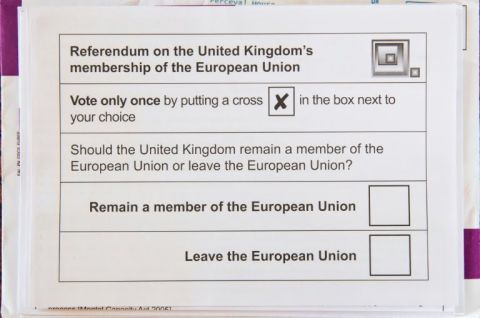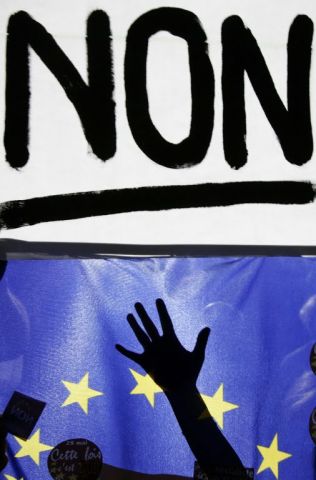A history marked by crises

This AFP story was published at the eruption of a new EU crisis: tensions over Poland's judicial reforms.
Perhaps the gravest challenge to face the EU is the Brexit saga which started with a 2016 referendum that decided the country should leave the union, as it did on January 31, 2020.
In 2017 the bloc was again tested – this time by judicial reforms in Poland which it was feared would undermine the rule of law and judicial independence. This AFP story published at the time looks back at crises in the EU.
BRUSSELS, December 20, 2017 (AFP) - Since its birth in 1957, what has become the European Union has lived through some tough tests.
Storm clouds gathered again on Wednesday when Brussels took unprecedented disciplinary proceedings against Poland over its highly controversial judicial reforms, which it says threaten the rule of law.
Here are some previous crises:
- Brexit -
The last crisis comes on June 23, 2016 when Britons vote 52 percent to 48 percent in favour of quitting the EU, putting itself on course to become the first country to quit the bloc on March 29, 2019.
London and Brussels embarked on tough divorce negotiations.
- Migration crisis -
In 2015 Europe is hit by its most serious migration crisis since the end of World War II.
EU leaders have struggled to work out a joint action plan, with several EU members refusing to take a share of refugees.
In September 2015 Germany, which had until then had been welcoming refugees, restores border controls, a move quickly followed by other countries.
- Greek debt -
In November 2009 Athens reveals a sharp rise in its public deficit, unleashing a financial crisis across the eurozone.
First Greece, then Ireland, Portugal, Spain and Cyprus seek aid from the EU and the International Monetary Fund, which demand strict fiscal discipline in return. Several heads of government fall as austerity measures provoke a popular backlash.

- Constitution shot down -
In the spring of 2005, French voters reject a draft European constitution proposed by the Treaty of Lisbon, followed three days later by Dutch voters.
Shocked European leaders manage to get a treaty ratified in 2009, with provisions designed to improve the functioning of the enlarged EU institutions.
- Austria sanctioned -
In February 2000 the conservative People's Party (OeVP) picks the far-right Freedom Party (FPOe) as its junior coalition partner, shocking the rest of Europe and leading to EU sanctions against Austria. The sanctions are lifted in September 2000.
At that time the FPOe was headed by Joerg Haider, who praised Hitler's "orderly employment policies".
The FPOe, which appears to have mellowed, on December 16 re-enters Austria's coalition government alongside the OeVP, and Europe's reaction has been muted.
- European Commission resigns -
On March 16, 1999 the European Commission led by Luxembourg's Jacques Santer resigns en masse following a report denouncing its responsibility for fraud.
- Danes reject treaty -
On June 2, 1992 Danes shock Europe when they turn down the Maastricht Treaty that established the EU and laid the groundwork for European monetary union. They barely approve an amended version in May 1993 after Denmark is granted greater autonomy in defence, currency, citizenship matters and judicial cooperation.
- Thatcher fights for rebate -
On November 30, 1979 British Prime Minister Margaret Thatcher reportedly declares: "I want my money back."
After five years of fierce negotiations, London secures its annual rebate at a 1984 summit in Fontainebleau, outside Paris.
- Empty chair -
In 1965, in what is known as the "Empty Chair" crisis, a stalemate that arises from a dispute over budget funding sees French President Charles de Gaulle withdraw French representatives from community activities for seven months.
- De Gaulle vetoes Britain -
On January 14, 1963 De Gaulle vetoes Britain's entry into the European Economic Community. He does so again on November 27, 1967 but Britain finally joins in 1973.
